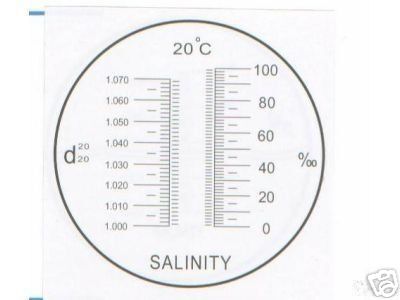Desert_Sky
Since 1998
Well Ive been wanting to get a refractometer for a while now. I won a Salinity Refractometer this morning off Ebay. Pretty decent price too $21.00
Is there much of a diference between a sugar refractometer and a salinity? Both will measure the specific gravity of liquids correct? Does anyone know what the diference is?
I guess If I got the wrong one I'll jsut put it back up on ebay.
heres a link of the same one on a diferent auction
http://cgi.ebay.com/NEW-Heavy-Duty-...0QQihZ018QQcategoryZ20755QQrdZ1QQcmdZViewItem
Is there much of a diference between a sugar refractometer and a salinity? Both will measure the specific gravity of liquids correct? Does anyone know what the diference is?
I guess If I got the wrong one I'll jsut put it back up on ebay.
heres a link of the same one on a diferent auction
http://cgi.ebay.com/NEW-Heavy-Duty-...0QQihZ018QQcategoryZ20755QQrdZ1QQcmdZViewItem



